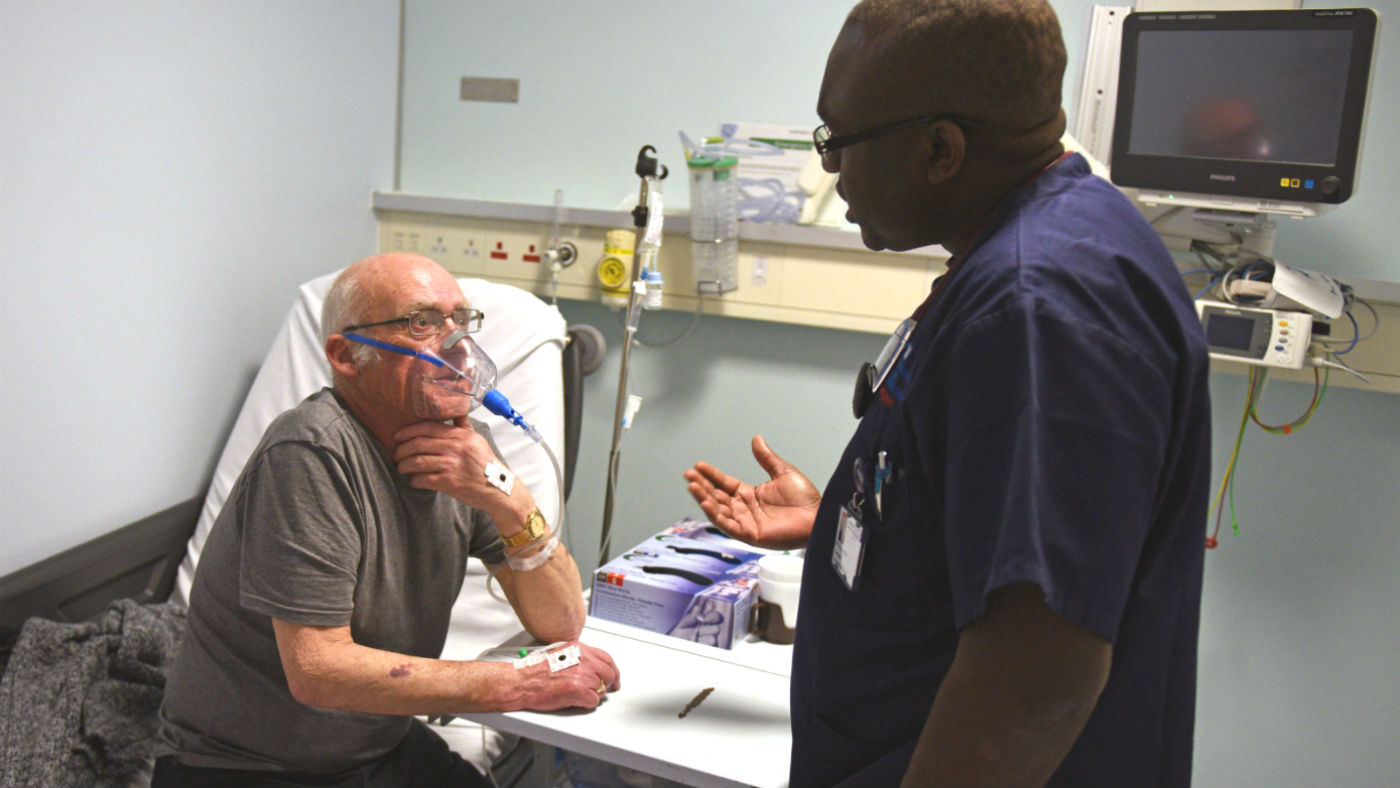Why do black doctors make less money?
‘Shocking’ new report reveals huge NHS pay gap between ethnicities

A free daily email with the biggest news stories of the day – and the best features from TheWeek.com
You are now subscribed
Your newsletter sign-up was successful
Black NHS doctors are paid on average nearly £10,000 a year less than their white colleagues, according to the biggest ever study on pay in the UK health service.
The NHS Digital report looked at the salaries of 750,000 NHS staff, from consultants to midwives to hospital porters, and found that there was a racial pay gap at all levels.
On average, black men working for the NHS make £5,796 less than their white counterparts, while the equivalent gap for black women is £1,980.
The Week
Escape your echo chamber. Get the facts behind the news, plus analysis from multiple perspectives.

Sign up for The Week's Free Newsletters
From our morning news briefing to a weekly Good News Newsletter, get the best of The Week delivered directly to your inbox.
From our morning news briefing to a weekly Good News Newsletter, get the best of The Week delivered directly to your inbox.
The disparity is especially acute among doctors, with black female and and male medics earning £9,612 and £9,492 less respectively than white ones.
It is the second time this month that the health service has been publicly called out over racial pay disparities.
A study of consultant salaries published in the British Medical Journal revealed that white consultants make an average of £4,664 a year more than senior doctors from BME (black and minority ethnic) backgrounds.
The figures have caused a stir within the NHS, where according to The Independent, ethnic minority employees make up around 20% of the total 1.2 million-strong workforce.
A free daily email with the biggest news stories of the day – and the best features from TheWeek.com
“It cannot be right that in 21st century Britain there are such wide gaps in pay between white and BME doctors when, irrespective of their background, they hold positions to deliver the same care to patients,” Dr Chaand Nagpaul, chair of the British Medical Association (BMA), told The Guardian.
The acting chief executive of the Royal College of Nursing, Donna Kinnair, said that the “shocking” disparity was rooted in the under-representation of non-white employees in highly paid top roles.
“The enormous pay gaps highlighted here reflect the appalling lack of diversity at senior levels in the NHS,” she said.
For many observers, however, the pay gap is just one of a myriad of issues facing black and ethnic minority doctors that go far beyond pounds and pence.
Nagpaul said that the recent pay studies were part of “a general pattern of unfair treatment of minority ethnic doctors”.
BME doctors are “more likely to face referral to the General Medical Council, are more likely to have their cases investigated and are more likely to face harsh sanctions following an investigation”, he said.
An internal report into racial inequality in the health service published last year said there had been a narrowing of racial pay gaps, as well as “positive change” in areas such as senior level representation.
However, it noted that BME staff “remain significantly more likely to experience discrimination at work from colleagues and their managers” and “less likely than white staff to believe that their trust provides equal opportunities for career progression”.
-
 6 of the world’s most accessible destinations
6 of the world’s most accessible destinationsThe Week Recommends Experience all of Berlin, Singapore and Sydney
-
 How the FCC’s ‘equal time’ rule works
How the FCC’s ‘equal time’ rule worksIn the Spotlight The law is at the heart of the Colbert-CBS conflict
-
 What is the endgame in the DHS shutdown?
What is the endgame in the DHS shutdown?Today’s Big Question Democrats want to rein in ICE’s immigration crackdown
-
 A real head scratcher: how scabies returned to the UK
A real head scratcher: how scabies returned to the UKThe Explainer The ‘Victorian-era’ condition is on the rise in the UK, and experts aren’t sure why
-
 How dangerous is the ‘K’ strain super-flu?
How dangerous is the ‘K’ strain super-flu?The Explainer Surge in cases of new variant H3N2 flu in UK and around the world
-
 The ‘menopause gold rush’
The ‘menopause gold rush’Under the Radar Women vulnerable to misinformation and marketing of ‘unregulated’ products
-
 How the care industry came to rely on migrant workers
How the care industry came to rely on migrant workersThe Explainer Government crackdown on recruiting workers abroad risks deepening care sector crisis, industry leaders warn
-
 Could medics' misgivings spell the end of the assisted dying bill?
Could medics' misgivings spell the end of the assisted dying bill?Today's Big Question The Royal College of Psychiatrists has identified 'serious concerns' with the landmark bill – and MPs are taking notice
-
 Washwood Heath: Birmingham's pioneering neighbourhood health service
Washwood Heath: Birmingham's pioneering neighbourhood health serviceIn the Spotlight NHS England chair says there is a 'really good argument this is the model for the future'
-
 The UK's first legal drug consumption room
The UK's first legal drug consumption roomThe Explainer 'Potentially transformative moment in UK drugs policy' as The Thistle opens in Glasgow
-
 How can the UK solve the adult social care crisis?
How can the UK solve the adult social care crisis?Today's Big Question New commission announced to turn our buckling care sector around: yet more delay or finally a way forward?